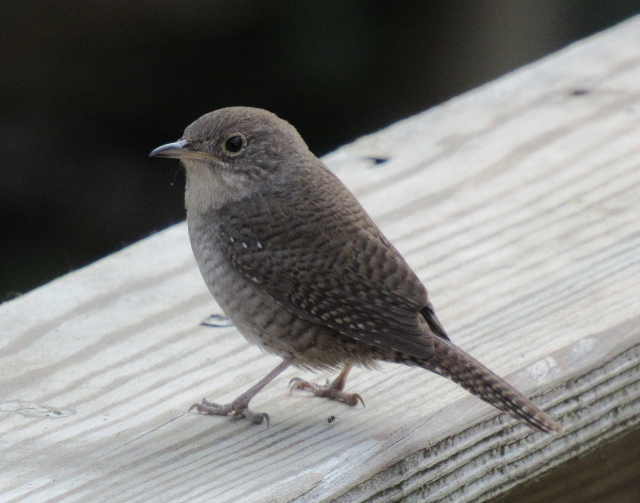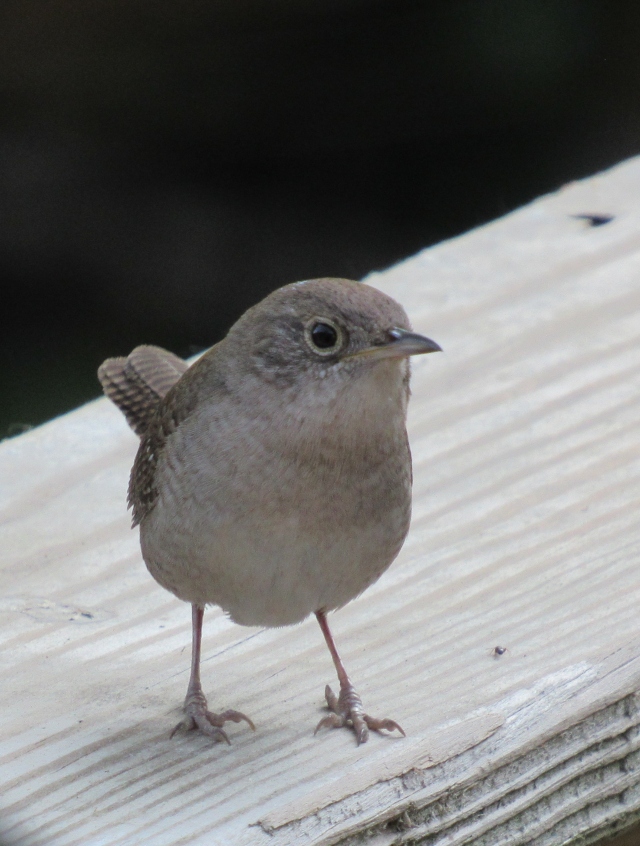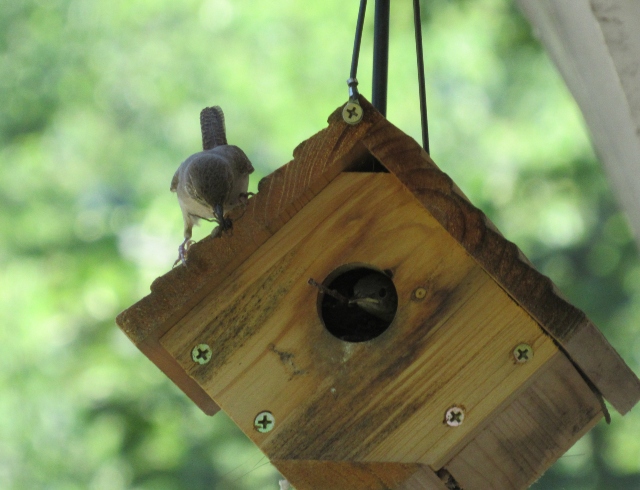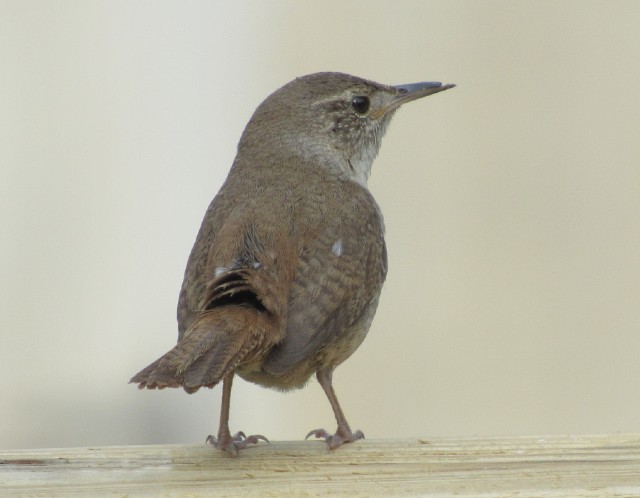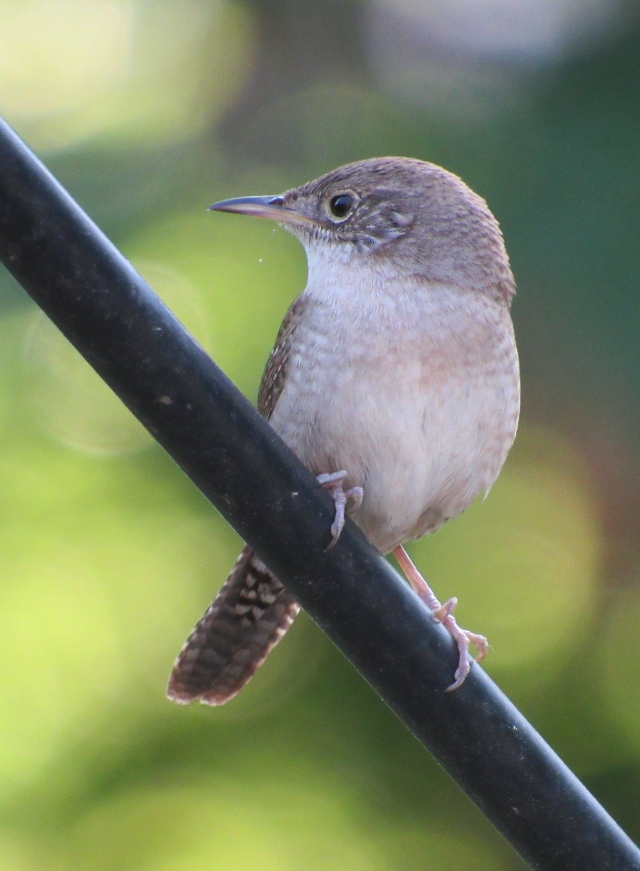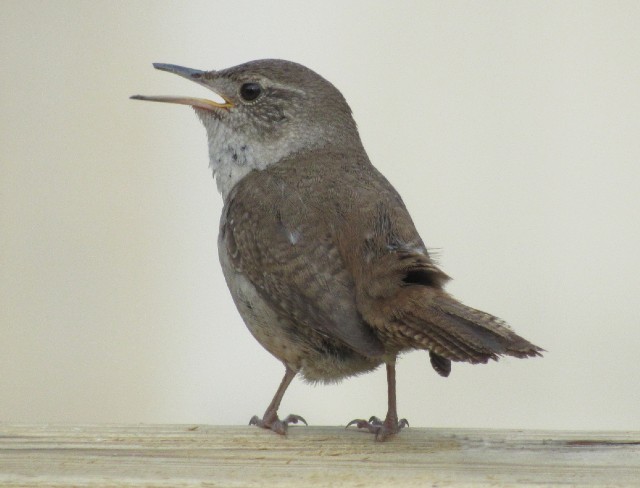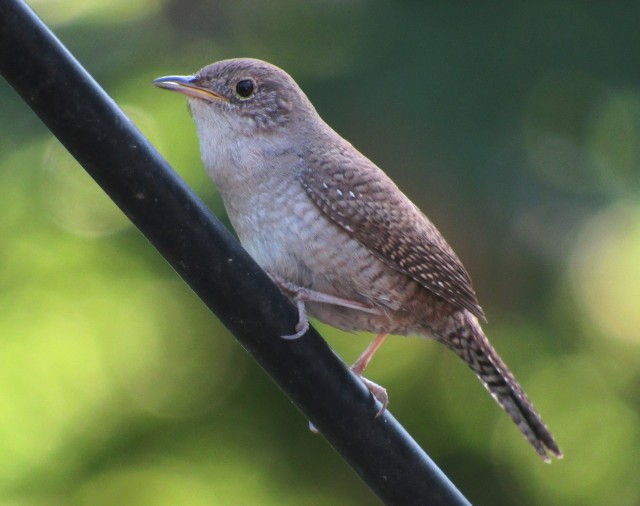We’ve had at least one of these birds visiting last year and again this year. I put up a birdhouse specifically for it. The male sits on or near the birdhouse, puts twigs in it and frequently calls in efforts to attract a female. A familiar backyard bird, the House Wren was named long ago for its tendency to nest around human homes or in birdhouses.
The House Wren has one of the largest ranges of any songbird in the New World. It breeds from Canada through the West Indies and Central America, and southward to the southernmost point of South America.
Very active and inquisitive, bouncing about with its short tail held up in the air, pausing to sing a rich song, the House Wren adds a lively spark to gardens and city parks despite its lack of bright colors. These birds feed on a wide variety of insects, including beetles, true bugs, grasshoppers, crickets, caterpillars, moths, flies, and many others. They also eat spiders, millipedes, and snails.
House Wrens nest inside tree holes and nest boxes. As the season progresses their nests can become infested with mites and other parasites that feed on the wren nestlings. Perhaps to fight this problem, wrens often add spider egg sacs into the materials they build their nests from. In lab studies, once the spiders hatched, they helped the birds by devouring the nest parasites.
Weighing less than two quarters, House Wrens are feisty and pugnacious animals, considering their tiny size. They are known to occasionally destroy the eggs of other birds nesting in their territory by puncturing their eggshells.
House Wrens range far and wide, spending summers over a large part of the United States and wintering anywhere from Florida to the southern tip of South America. Only a few stay here in cold months, as they are replaced by the aptly named Winter Wren visiting from the mountains.
The House Wren is a plain looking songbird, but its bubbling songs, nonstop activity and willingness to live near people make a pleasure to observe.

